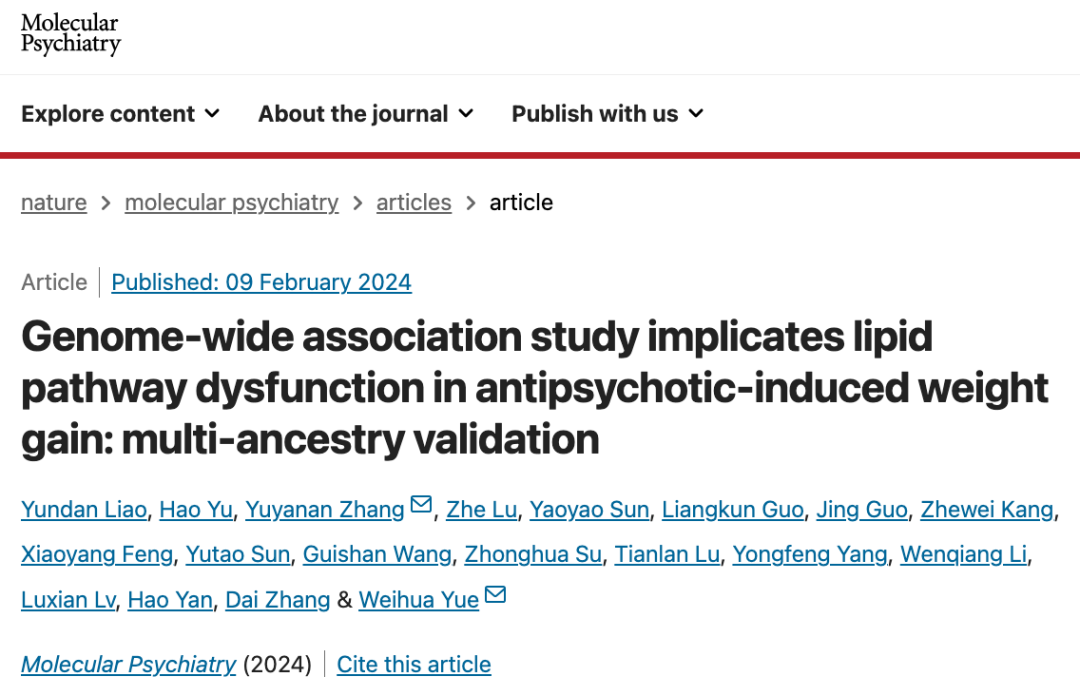Molecular Psychiatry︱Prof. Weihua Yue: Genome-wide association study implicates lipid pathway dysfunction in antipsychotic-induced weight gain: multi-ancestry validation

Abstract
Antipsychotic-induced weight gain (AIWG) is a common side effect of antipsychotic medication and may contribute to diabetes and coronary heart disease. To expand the unclear genetic mechanism underlying AIWG, we conducted a two-stage genome-wide association study in Han Chinese patients with schizophrenia. The study included a discovery cohort of 1936 patients and a validation cohort of 534 patients, with an additional 630 multi-ancestry patients from the CATIE study for external validation. We applied Mendelian randomization (MR) analysis to investigate the relationship between AIWG and antipsychotic-induced lipid changes. Our results identified two novel genome-wide significant loci associated with AIWG: rs10422861 in PEPD (P = 1.373 × 10–9) and rs3824417 in PTPRD (P = 3.348 × 10–9) in Chinese Han samples. The association of rs10422861 was validated in the European samples. Fine-mapping and functional annotation revealed that PEPD and PTPRD are potentially causal genes for AIWG, with their proteins being prospective therapeutic targets. Colocalization analysis suggested that AIWG and type 2 diabetes (T2D) shared a causal variant in PEPD. Polygenic risk scores (PRSs) for AIWG and T2D significantly predicted AIWG in multi-ancestry samples. Furthermore, MR revealed a risky causal effect of genetically predicted changes in low-density lipoprotein cholesterol (P = 7.58 × 10−4) and triglycerides (P = 2.06 × 10−3) caused by acute-phase of antipsychotic treatment on AIWG, which had not been previously reported. Our model, incorporating antipsychotic-induced lipid changes, PRSs, and clinical predictors, significantly predicted BMI percentage change after 6-month antipsychotic treatment (AUC = 0.79, R2 = 0.332). Our results highlight that the mechanism of AIWG involves lipid pathway dysfunction and may share a genetic basis with T2D through PEPD. Overall, this study provides new insights into the pathogenesis of AIWG and contributes to personalized treatment of schizophrenia.
Original Link
https://doi.org/10.1038/s41380-024-02447-2